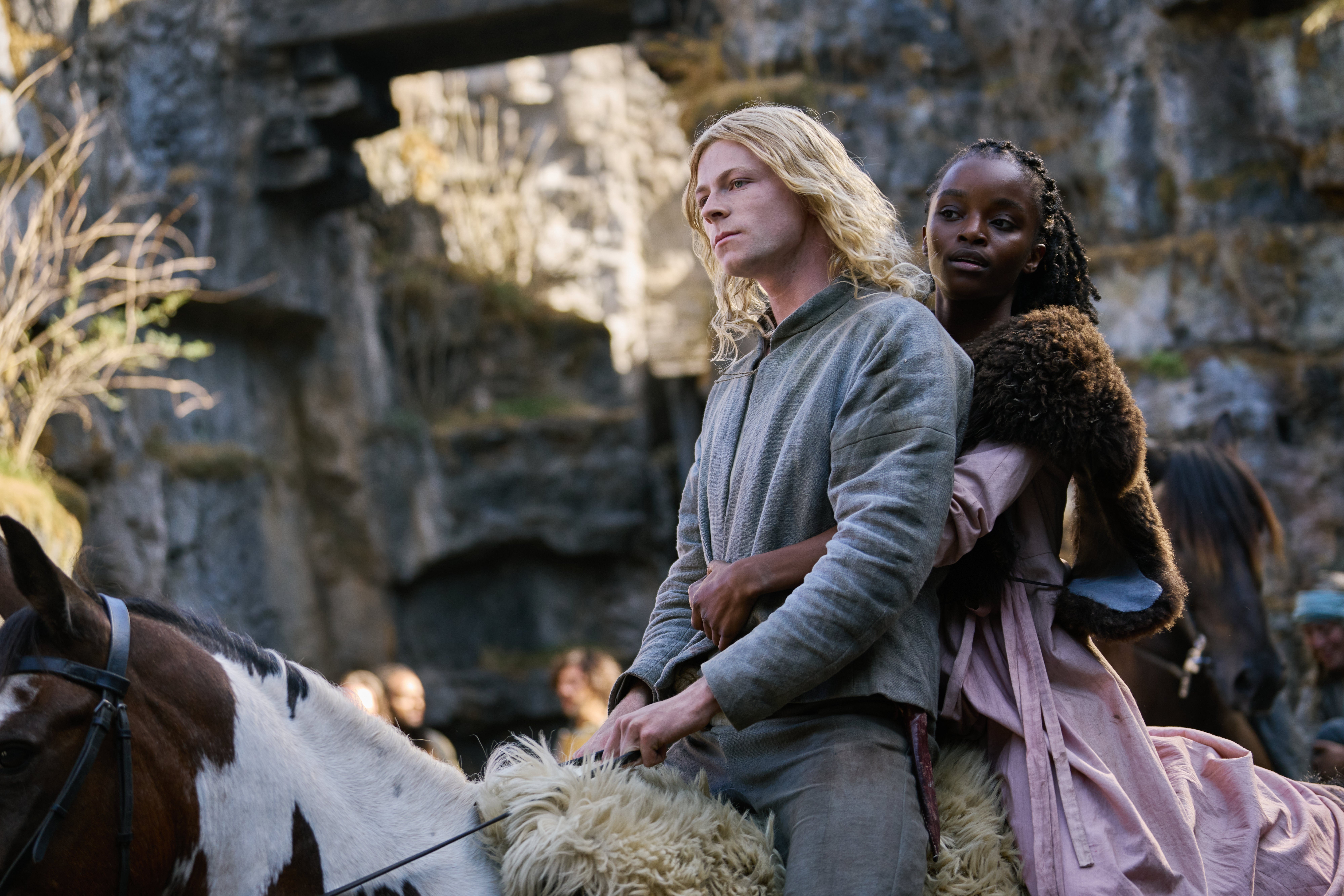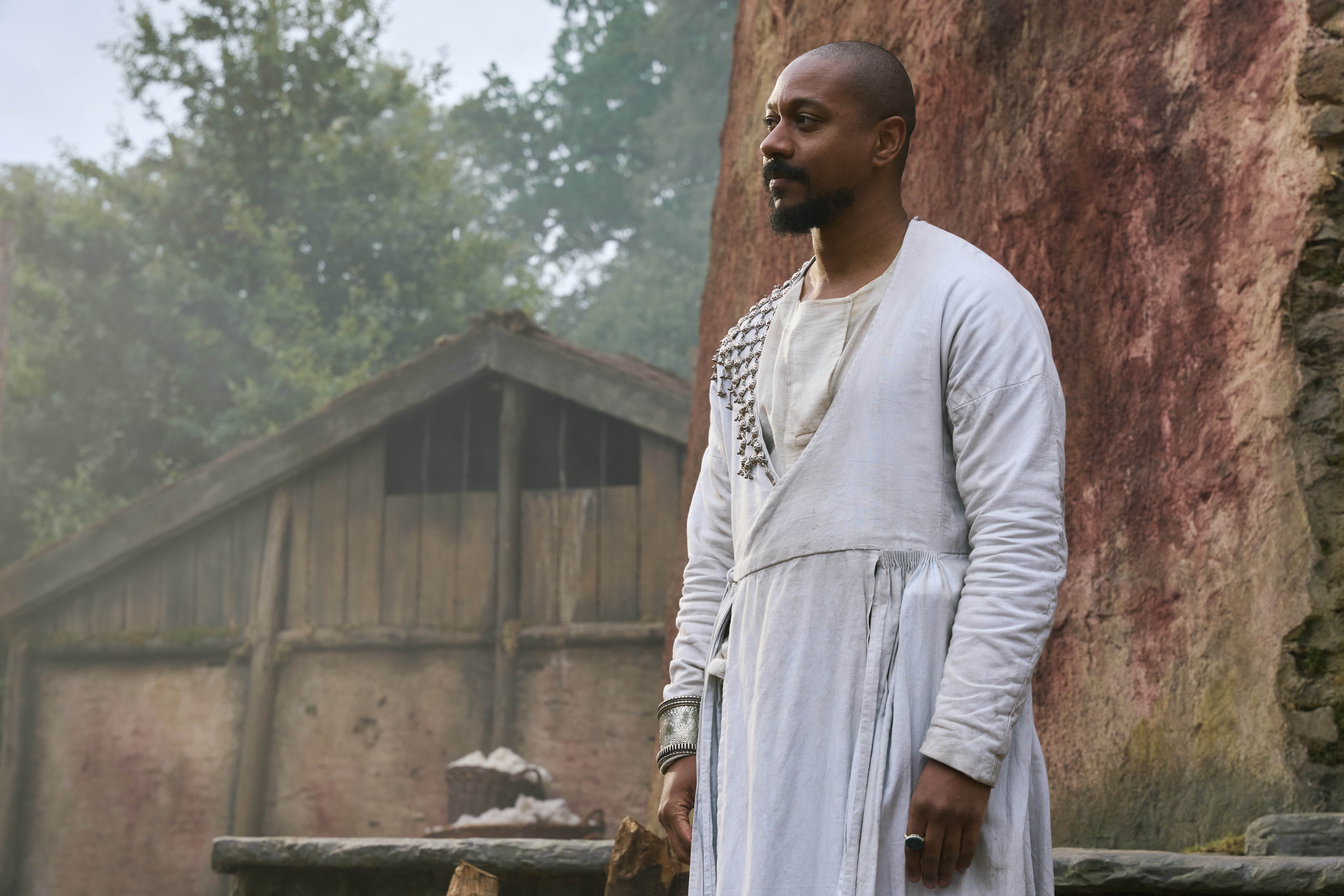In need of a novel way to introduce King Arthur to a new audience, ITV’s gritty new retelling of the legend takes a surprising approach – keeping their hero off screen for as long as possible.
The Winter King, on TV from December 21, offers a pick ‘n mix of various adaptations – giving room for magic, battles, love triangles, and family feuds. But, stylistically, this is a drama with licence to shock and is the closest Camelot has come to Game of Thrones. The BBC’s Merlin, this is not.
Iain De Caestecker, fresh from a star turn in Agents of Shield, plays a blood-stained Arthur as he returns from battle bearing news of defeat and that King Uther’s son and heir has died. Sorry, what? Yep, this time around, Arthur is the illegitimate son, whose battlefield prowess and brave character apparently represents the best hope for the Dumnonia kingdom. However, Uther (a delightfully raging Eddie Marsan) is not in the mood to hear Arthur is the man for the job, and banishes him into exile.
Things start promisingly: when he saves the life of a young boy, Derfel, a glint of heroism can be seen. But then the would-be king rides off our screens and is barely seen again until the end of episode two. Given that only two episodes out of a total of ten were made available to reviewers, this does present a problem when it comes to judging the 'King' part of The Winter King, but let's give it a go.

In a strange way, The Winter King establishes its legend by his absence. Dumnonia falls into crisis as Saxons invade, Uther ages and eventually dies – leaving his baby son Mordrid (predicted by the Gods to bring ruin) as the king. Arthur, then, becomes a hero for what he is not doing, making him a figure akin to Luke Skywalker: spoken of, longed for, gone.
In Arthur’s absence, the narrative focus shifts to the exceptionally blond Derfel (Stuart Campbell) growing up in a community of exiles named (what else) Avalon under the tutelage of Merlin. Collateral’s Nathaniel Martello-White's unusually youthful wizard is the glue that holds the various sub-plots together. In Avalon, Derfel forms a will-they-won’t-they friendship with the spiritual Nimue (Ellie James), Merlin's protegée, and their progress is an accessible entry point while also providing a fresh perspective on the age-old saga.
Based on Bernard Cornwell’s The Warlord Chronicles series, The Winter King is as vast in scope as the rolling landscapes of fifth century Britain that the characters roam. The ten episodes are feature length but two episodes in, an already swelling cast makes it anxiety-inducing: how on earth will it all tie together?

It also suffers from an inevitable expectation. Like fellow British legends James Bond or Robin Hood, which have also been done to death, it carries the weight of being told and retold, leaving us wondering about the obvious as the episodes tick on: where is Guinevere? Why hasn’t Arthur found Excalibur yet? If they don’t introduce Lancelot soon, what will even be the point? And if Arthur is Luke Skywalker, does that make Derfel Rey?
Persevere after the first episode, which is largely conflict-free but trots along, laying some sturdy, if unthrilling, plot foundations. It's the that second breaks into a gallop, when Avalon is sacked by rival king Gundleus (a nasty Simon Merrells) who has somehow also bent Uther’s ear to gain control in Dumnonia. And from here The Winter King, the series, flexes its muscles and demands to be taken seriously as an adult drama.
The violence is not excessive, or overplayed for the sake of it. But this is not the family-friendly version of the legend from The Sword in the Stone. There is a rape. Children are brutally killed. An unsafe space, where anything could and does happen, is created.
All of which makes Arthur’s eventual return at the end of episode two feel triumphant when it could have been cheesy. The signs are good for the rest of this epic series; may the Force be with it.







